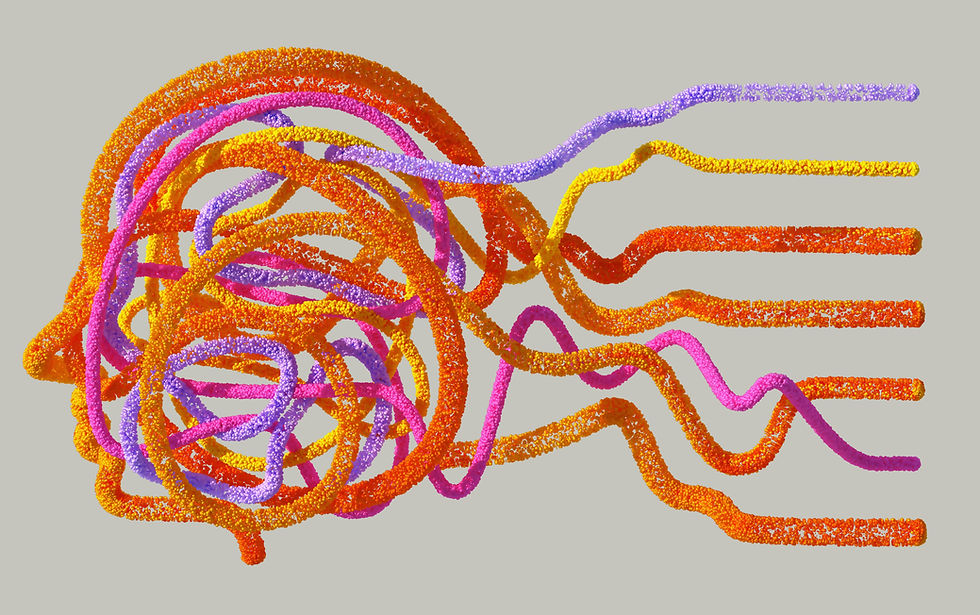Hormone Balance, is Coffee Good or Bad?
- Casey

- Jan 27, 2025
- 3 min read
Updated: Aug 13, 2025
Coffee can boost energy and improve focus, but its impact on hormone health, sleep, and stress levels varies depending on timing and individual conditions. Learn when to drink coffee, how much is safe, and why excessive consumption might disrupt your hormones and overall well-being.

Hormone Balance, is Coffee good or bad?
Is coffee good or bad for hormone balance? Coffee is a beloved beverage for many, offering both comfort and a mental boost. But is it right for everyone, and when is it best to drink it?
Benefits of Coffee
Improved Mental Alertness: Coffee is well-known for enhancing focus and concentration. The caffeine in coffee blocks adenosine (a sleep-inducing neurotransmitter), helping to keep you alert.
Rich in Antioxidants: Coffee is packed with antioxidants, which help fight inflammation and protect against cell damage.
Enhanced Physical Performance: Caffeine stimulates adrenaline production, improving physical performance by increasing energy and endurance.
Mental Health Benefits: Some studies suggest that moderate coffee consumption may reduce the risk of depression and even lower the risk of neurodegenerative diseases like Parkinson's and Alzheimer's.
When to Avoid Coffee
Before Bedtime: Avoid coffee in the late afternoon or evening, as caffeine can disrupt sleep patterns and reduce sleep quality. It takes several hours for caffeine to leave your system.
Hormonal Health Considerations:
Cortisol: Drinking coffee first thing in the morning can spike cortisol levels, your body’s primary stress hormone. High cortisol can interfere with hormone balance, lead to chronic stress, and negatively affect your immune and digestive systems.
Estrogen Dominance: Excessive coffee consumption can potentially exacerbate estrogen dominance, a condition where the body has too much estrogen relative to progesterone. High cortisol levels from excessive caffeine can interfere with liver detoxification processes, which may prevent the proper metabolism and excretion of estrogen, further aggravating estrogen dominance symptoms.
Menopause: During menopause, coffee can worsen hot flashes and night sweats due to its stimulating effect on the nervous system and its ability to increase body temperature. Additionally, caffeine may reduce the effectiveness of certain hormone replacement therapies (HRT).
Thyroid Health: Excessive caffeine can interfere with thyroid function, particularly in people with thyroid conditions like hypothyroidism or Hashimoto's disease. Caffeine can hinder the absorption of thyroid medications, and its stimulating effects may worsen symptoms like anxiety or insomnia in individuals with thyroid dysfunction.
Liver Health: The liver plays a key role in hormone metabolism. Overconsumption of coffee can stress the liver, which in turn can affect hormone balance. This is especially important for individuals with liver disease, as caffeine can exacerbate liver damage and hinder the detoxification process of excess hormones (like estrogen).
Adrenal Fatigue or Anxiety: If you struggle with anxiety or adrenal fatigue, coffee may exacerbate symptoms due to its stimulating effects on the nervous system.
What Happens if You Drink More Than 2 Cups a Day
Increased Anxiety and Jitters: Drinking more than 2 cups daily can lead to overstimulation of the nervous system, causing symptoms like anxiety, jitteriness, and rapid heartbeat.
Disrupted Sleep: Excessive caffeine, particularly if consumed later in the day, can interfere with your ability to fall asleep or achieve deep sleep, leading to sleep deprivation and fatigue.
Hormonal Imbalance: Too much caffeine, especially first thing in the morning, can elevate cortisol levels too high, potentially disrupting your body’s natural rhythm and increasing stress over time.
Digestive Issues: Coffee is acidic, and excessive consumption can lead to stomach discomfort or acid reflux, especially for individuals with sensitive stomachs.
When to Drink Coffee
Morning Energy Boost: If you need to get going in the morning, coffee is most effective after your body has naturally woken up. Waiting an hour post-wake allows your cortisol levels to naturally peak before caffeine interferes.
Pre-Workout: Coffee can help enhance athletic performance by providing an energy boost and improving endurance.
The Truth About Coffee: Good or Bad?
Coffee offers many health benefits when consumed mindfully. Stick to the recommended amount of 1-2 cups per day to enjoy the perks without the risks. Timing, quantity, and individual health conditions (such as hormonal health) all play a role in how coffee affects your body. Pay attention to how your body responds to optimize the benefits and avoid unwanted side effects.



Comments